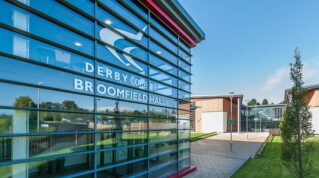Business change driven by consumer demand for sustainability
Addressing the sustainability imperative has proven to be profitable for business. The fact that over the past 5 years, 89% of people have made changes in their purchases to buy more sustainable products (Statista, 2022) further reinforces the growing need to consider the impact of sustainable initiatives across all aspects of business. Society is currently going through an ‘eco-awakening’ with research suggesting that we are on the brink of a major shift in patterns of consumption (HBR, 2023). It is clear that there is a strong correlation between focusing on the planet and people, and a direct impact in the growth of profits.
Environmental impact can no longer be an afterthought that businesses try to mitigate against. It must be considered and woven into the fabric of decision making throughout every stage, process and level. Businesses that are starting to achieve this now will have a solid foundation for future success. Cristianne Close (Global Markets Practice Leader, WWF International) stated that
“brands that deliver on pursuit of purpose, that drive a culture of sustainable innovation, are the front runners in consumers’ eyes – and they are watching”.
Cristianne Close
The green talent gap
A recent study has highlighted that many businesses are struggling to source the talent to drive environmental change, and “with demand for sustainability talent outpacing supply, it is increasingly difficult to recruit skilled individuals, thus stalling progress on sustainability goals” (Gartner, 2024).
Employers need to find and develop managers who can motivate, enthuse and build respect throughout their workforce. Addressing these skills gaps, as well as creating a skilled pipeline of recruits familiar with sustainable business practices, will help to grow a workforce better equipped to help achieve sustainability goals, carbon emission reductions, and net zero targets.
Major consumer brands such as Unilever, Patagonia, IKEA, Microsoft, Danone, Nestle, and Tesla have led the way in making serious commitments and progress toward sustainability goals, creating dedicated job roles for specialists in sustainability. According to LinkedIn (2020) there were 10% more job postings and a 7.5% increase in members with ‘sustainability’ in their title. The current trend in hiring dedicated corporate social responsibility/sustainable practitioners is growing.
As the world’s leading learning company, creating a more sustainable world is a natural part of everything that Pearson does. Learning itself is the greatest force for change in our world and helping people gain knowledge and skills is, inherently, a way to improve our planet and our society. Pearson achieves this every day by turning products into vibrant learning experiences, focusing on people, and protecting our planet, forming the bedrock of their Sustainable Business Strategy.
How Pearson is bridging the sustainability skills gap
Pearson’s new Higher Technical Qualification (HTQ) in Sustainable Business Management is one way learners can develop the skills employers need to meet their sustainability goals. The Higher National Diploma (HND) includes modules in Principles of Sustainability, Corporate Governance and Ethics, and The Contemporary Business Environment.
The aim is to help students develop sustainable business management skills and the knowledge and understanding to deliver sustainable business activities and drive the sustainability agenda. The units within the qualification also cover areas such as green accounting, the UN’s Sustainable Development Goals, supply chain management, virtue ethics, leadership and management, emotional intelligence and much more. No matter which sector graduates choose to enter, having a qualification in Sustainable Business Management will be invaluable in helping companies to set, implement, and achieve sustainable development goals.
Dr Paul Pritchard (Senior Associate at the Cambridge Institute for Sustainability Leadership), one of the independent consultants for the qualification development stated that:
“Sustainability is rightly being seen by organisations as a critical issue- meeting legal requirements and beyond that supporting innovation leading to improvements in operational efficiencies and identification of new business models. The need for development of sustainability skills is also widely recognised, not least in underpinning future career opportunities for employees. Accordingly, it has been a pleasure working with the Pearson team on the Sustainable Business Management qualification, which I consider to be a valuable contribution to meeting the current and future sustainability education needs of the workforce. I am convinced that these qualifications will be important, not only through their benefit to employers but also reflecting the increasing interest in sustainability issues I see at the level of the individual employee.”
Dr Paul Pritchard
Pearson’s Level 5 BTEC Higher National Diploma in Sustainable Business Management is one of the latest qualifications to be awarded with HTQ status from The Institute for Apprenticeships and Technical Education (IfATE). Pearson’s HTQ portfolio is continuing to grow, offering high quality subjects across a broad range of sectors.
You can find out more about HTQs by visiting the Pearson website.

















Your thoughts